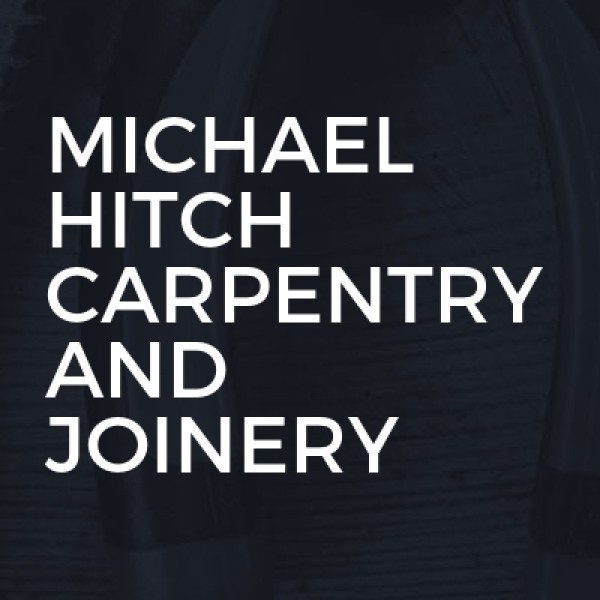Loft Conversions in Spennymoor
Filter your search
Post your job FREE and let trades come to you
Save time by filling out our simple job post form today and your job will be sent to trades in your area so you can sit back, relax and wait for available trades to contact you.
Post your job FREESearch Loft Conversions in places nearby
Understanding Loft Conversions in Spennymoor
Loft conversions in Spennymoor have become a popular choice for homeowners looking to maximise their living space without the hassle of moving. With the charm of this County Durham town and the increasing demand for more space, converting a loft is an attractive option. This article delves into the various aspects of loft conversions, providing a comprehensive guide for anyone considering this home improvement project.
The Benefits of Loft Conversions
Loft conversions offer numerous advantages, making them a worthwhile investment for many homeowners. Firstly, they significantly increase the living space in a home, providing an extra bedroom, office, or even a playroom. This additional space can enhance the functionality of a home, catering to growing families or changing needs.
Moreover, loft conversions can add substantial value to a property. In Spennymoor, where property prices are steadily rising, a well-executed loft conversion can offer a high return on investment. It’s a cost-effective way to increase property value without the need for an extension.
Another benefit is the potential for improved energy efficiency. By upgrading insulation and windows during the conversion, homeowners can reduce energy bills and create a more comfortable living environment.
Types of Loft Conversions
There are several types of loft conversions, each with its own set of benefits and considerations. The most common types include:
- Dormer Loft Conversion: This involves extending the existing roof to create additional headroom and floor space. It’s a versatile option suitable for most types of homes.
- Mansard Loft Conversion: Typically found in urban areas, this conversion involves altering the roof structure to create a flat roof with a steep back wall. It offers maximum space but requires more structural work.
- Hip to Gable Loft Conversion: Ideal for semi-detached or detached homes with a hipped roof, this conversion extends the sloping side of the roof to create a vertical wall, increasing space.
- Velux Loft Conversion: The simplest and most cost-effective option, this conversion involves installing roof windows without altering the roof structure.
Planning Permission and Building Regulations
Before embarking on a loft conversion in Spennymoor, it’s crucial to understand the planning permission and building regulations involved. Generally, loft conversions fall under permitted development rights, meaning they don’t require planning permission. However, there are exceptions, particularly for properties in conservation areas or listed buildings.
Building regulations, on the other hand, are mandatory for all loft conversions. These regulations ensure the safety and structural integrity of the conversion, covering aspects such as fire safety, insulation, and staircase design. It’s advisable to consult with a professional architect or builder to ensure compliance with all necessary regulations.
Choosing the Right Loft Conversion Specialist
Selecting a reputable loft conversion specialist is crucial to the success of the project. When choosing a contractor in Spennymoor, consider their experience, portfolio, and customer reviews. It’s also important to ensure they are fully insured and accredited by relevant trade bodies.
Requesting quotes from multiple specialists can help you compare prices and services, ensuring you get the best value for your investment. Don’t hesitate to ask for references or visit previous projects to assess the quality of their work.
Designing Your Loft Conversion
The design phase is an exciting part of the loft conversion process, allowing homeowners to tailor the space to their specific needs and preferences. Considerations include the layout, lighting, and storage solutions. It’s important to maximise natural light, perhaps by incorporating skylights or large windows.
Storage is another key aspect, with bespoke solutions such as built-in wardrobes or shelving helping to make the most of the available space. Working with an experienced designer can ensure the final result is both functional and aesthetically pleasing.
Cost Considerations
The cost of a loft conversion in Spennymoor can vary significantly depending on the type of conversion, the size of the space, and the quality of materials used. On average, a basic loft conversion can start from around £20,000, while more complex projects can exceed £50,000.
It’s important to budget for additional costs such as planning fees, building regulations approval, and any unforeseen expenses. Obtaining a detailed quote from your contractor can help you plan your finances effectively and avoid any nasty surprises.
Timeline for Completion
The timeline for completing a loft conversion can vary depending on the complexity of the project. On average, a straightforward conversion can take between 6 to 8 weeks, while more intricate designs may require up to 12 weeks.
Factors that can affect the timeline include the need for planning permission, structural alterations, and the availability of materials. It’s essential to discuss the expected timeline with your contractor and factor in any potential delays.
Potential Challenges and Solutions
While loft conversions offer numerous benefits, they can also present challenges. Common issues include limited headroom, awkward layouts, and access difficulties. However, with careful planning and expert advice, these challenges can be overcome.
For instance, installing dormer windows can increase headroom, while bespoke furniture can make the most of awkward spaces. Ensuring a well-designed staircase can also improve access and safety.
Environmental Considerations
As environmental concerns become increasingly important, many homeowners are seeking eco-friendly loft conversion solutions. This can include using sustainable materials, improving insulation, and incorporating energy-efficient lighting and heating systems.
By prioritising environmental considerations, homeowners can reduce their carbon footprint and create a healthier living environment. Consulting with a specialist who has experience in eco-friendly designs can provide valuable insights and options.
Legal and Insurance Aspects
It’s essential to address the legal and insurance aspects of a loft conversion before starting the project. This includes ensuring compliance with building regulations and obtaining any necessary planning permissions.
Additionally, it’s advisable to inform your home insurance provider of the conversion, as it may affect your policy. Ensuring your contractor has adequate insurance coverage is also crucial to protect against any potential liabilities.
Maintaining Your Loft Conversion
Once your loft conversion is complete, regular maintenance is key to preserving its condition and value. This includes checking for any signs of dampness or leaks, ensuring the insulation remains effective, and keeping windows and skylights clean.
Scheduling regular inspections with a professional can help identify any issues early and prevent costly repairs. Maintaining your loft conversion will ensure it remains a valuable and functional part of your home for years to come.
Case Studies: Successful Loft Conversions in Spennymoor
Examining successful loft conversions in Spennymoor can provide inspiration and insights for your own project. Many homeowners have transformed their lofts into stunning living spaces, adding value and functionality to their homes.
For example, one family converted their loft into a spacious master bedroom with an en-suite bathroom, complete with skylights and bespoke storage solutions. Another homeowner created a bright and airy home office, taking advantage of the natural light and views.
Frequently Asked Questions
- Do I need planning permission for a loft conversion in Spennymoor? Most loft conversions fall under permitted development rights, but it’s best to check with your local council.
- How much does a loft conversion cost? Costs can vary, but a basic conversion typically starts from £20,000.
- How long does a loft conversion take? On average, it takes 6 to 12 weeks, depending on the complexity.
- Can I convert any loft? Most lofts can be converted, but factors like headroom and roof structure may affect feasibility.
- Will a loft conversion add value to my home? Yes, it can significantly increase your property’s value.
- What are the building regulations for loft conversions? They cover safety, insulation, and structural integrity, among other aspects.
Final Thoughts on Loft Conversions in Spennymoor
Loft conversions in Spennymoor offer a fantastic opportunity to enhance your home’s space and value. By understanding the different types of conversions, planning permissions, and design considerations, you can embark on a successful project that meets your needs and budget. With careful planning and the right expertise, your loft conversion can become a cherished part of your home, providing comfort and functionality for years to come.








